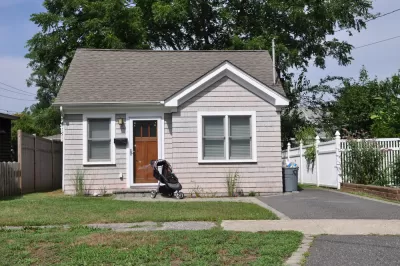The effects of the coronavirus pandemic on the U.S. real estate market are only beginning to show, but renters, homeowners, landlords, lenders, and more need to prepare for the worst.

Dwight Merriam writes to get an initial read of the effects of the coronavirus pandemic on the real estate market, summarizing the initial status of the market as a widespread crisis, with few apparent responses available and numerous effects.
Expected housing pressures for renters and owners have caused banks to decrease lending. Merriam expects home values to fall as buyers leave the market, and the entire process of buying a home becomes problematic (open houses are inadvisable, for instance).
The effect has already been felt. The National Association of Realtors surveyed its members on March 9 and its Realtors reported an 11% drop in buyer traffic and 7% lower seller traffic. The NAR predicts a 10% reduction in sales, at least in the short-term, as a consequence of the coronavirus. The NAR also issued a guide for its members about what questions they can ask of those they are dealing with as to their exposure to the virus and warning them to avoid discrimination.
The market has already reacted strongly, with REITs in mall properties and hospitality hammered. Ryman Hospitality Properties was $90.30 a share on February 18th. On Monday, March 17th, it closed at $24.09.
The remainder of the article reads like an info dump and a brainstorm, because there are many, many questions about fraud, liability, insurance, and business interruptions that simply don't have answers yet.
[The article requires an email registration, but is otherwise free to read.]
FULL STORY: The Coronavirus Pandemic and the Crisis in Real Estate

Alabama: Trump Terminates Settlements for Black Communities Harmed By Raw Sewage
Trump deemed the landmark civil rights agreement “illegal DEI and environmental justice policy.”

Planetizen Federal Action Tracker
A weekly monitor of how Trump’s orders and actions are impacting planners and planning in America.

Why Should We Subsidize Public Transportation?
Many public transit agencies face financial stress due to rising costs, declining fare revenue, and declining subsidies. Transit advocates must provide a strong business case for increasing public transit funding.

Understanding Road Diets
An explainer from Momentum highlights the advantages of reducing vehicle lanes in favor of more bike, transit, and pedestrian infrastructure.

New California Law Regulates Warehouse Pollution
A new law tightens building and emissions regulations for large distribution warehouses to mitigate air pollution and traffic in surrounding communities.

Phoenix Announces Opening Date for Light Rail Extension
The South Central extension will connect South Phoenix to downtown and other major hubs starting on June 7.
Urban Design for Planners 1: Software Tools
This six-course series explores essential urban design concepts using open source software and equips planners with the tools they need to participate fully in the urban design process.
Planning for Universal Design
Learn the tools for implementing Universal Design in planning regulations.
Caltrans
Smith Gee Studio
Institute for Housing and Urban Development Studies (IHS)
City of Grandview
Harvard GSD Executive Education
Toledo-Lucas County Plan Commissions
Salt Lake City
NYU Wagner Graduate School of Public Service




























